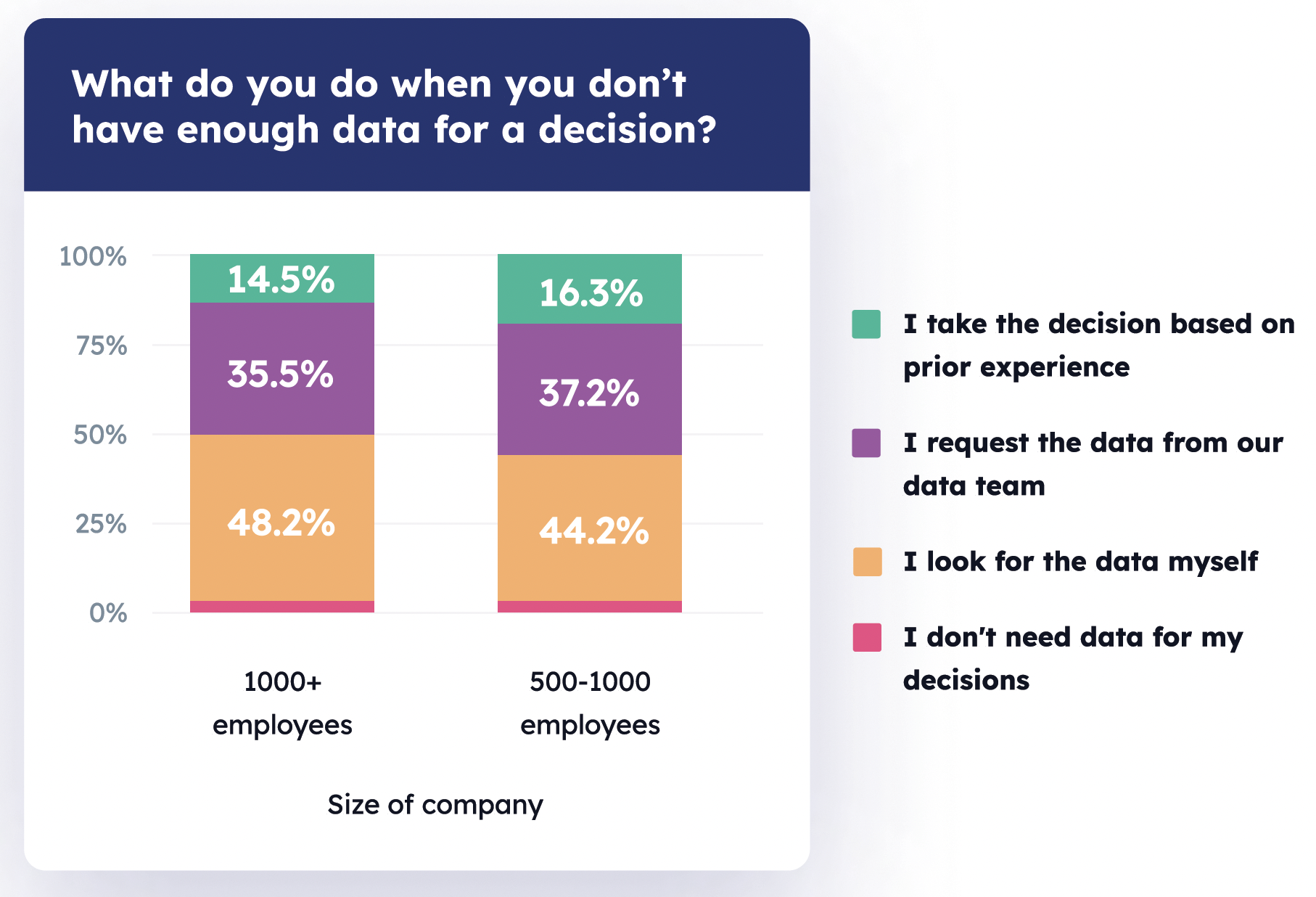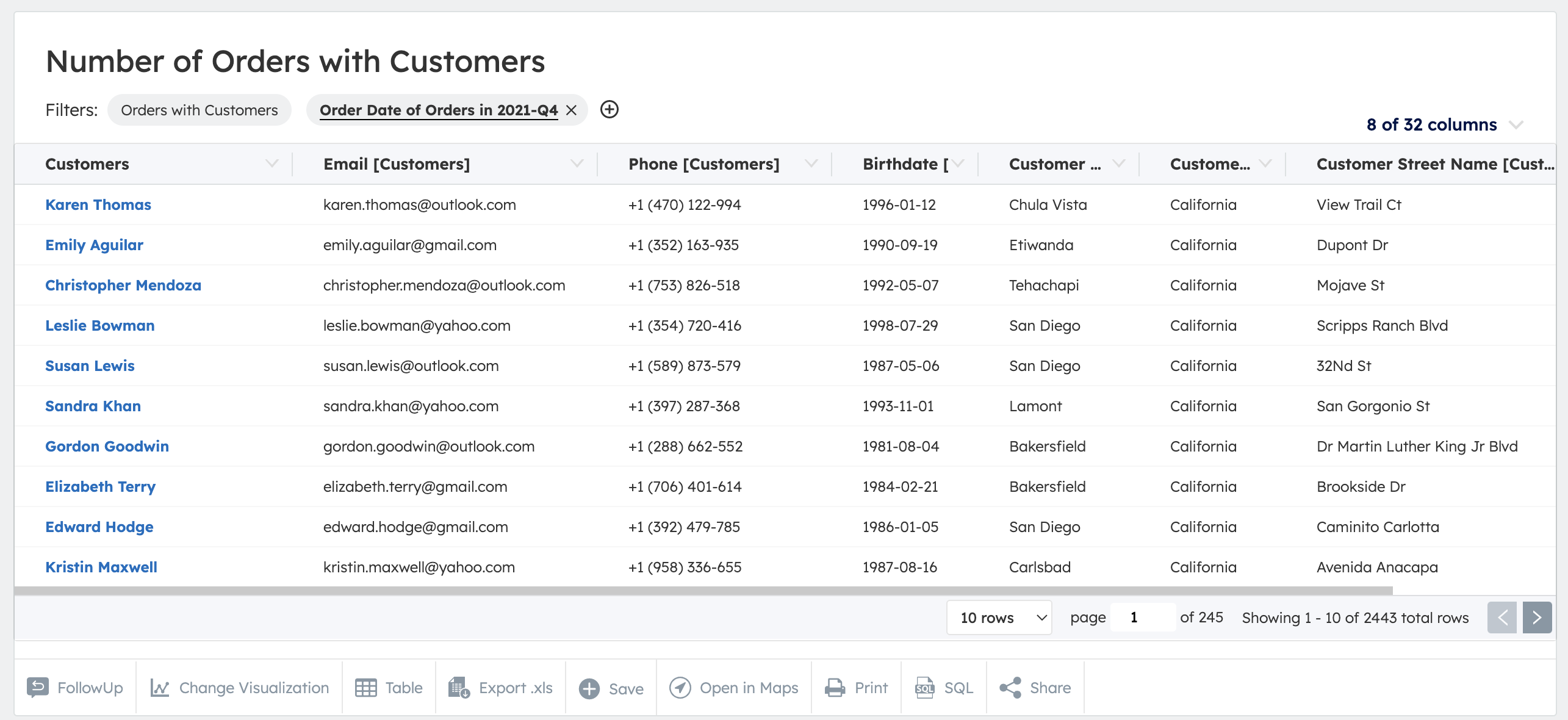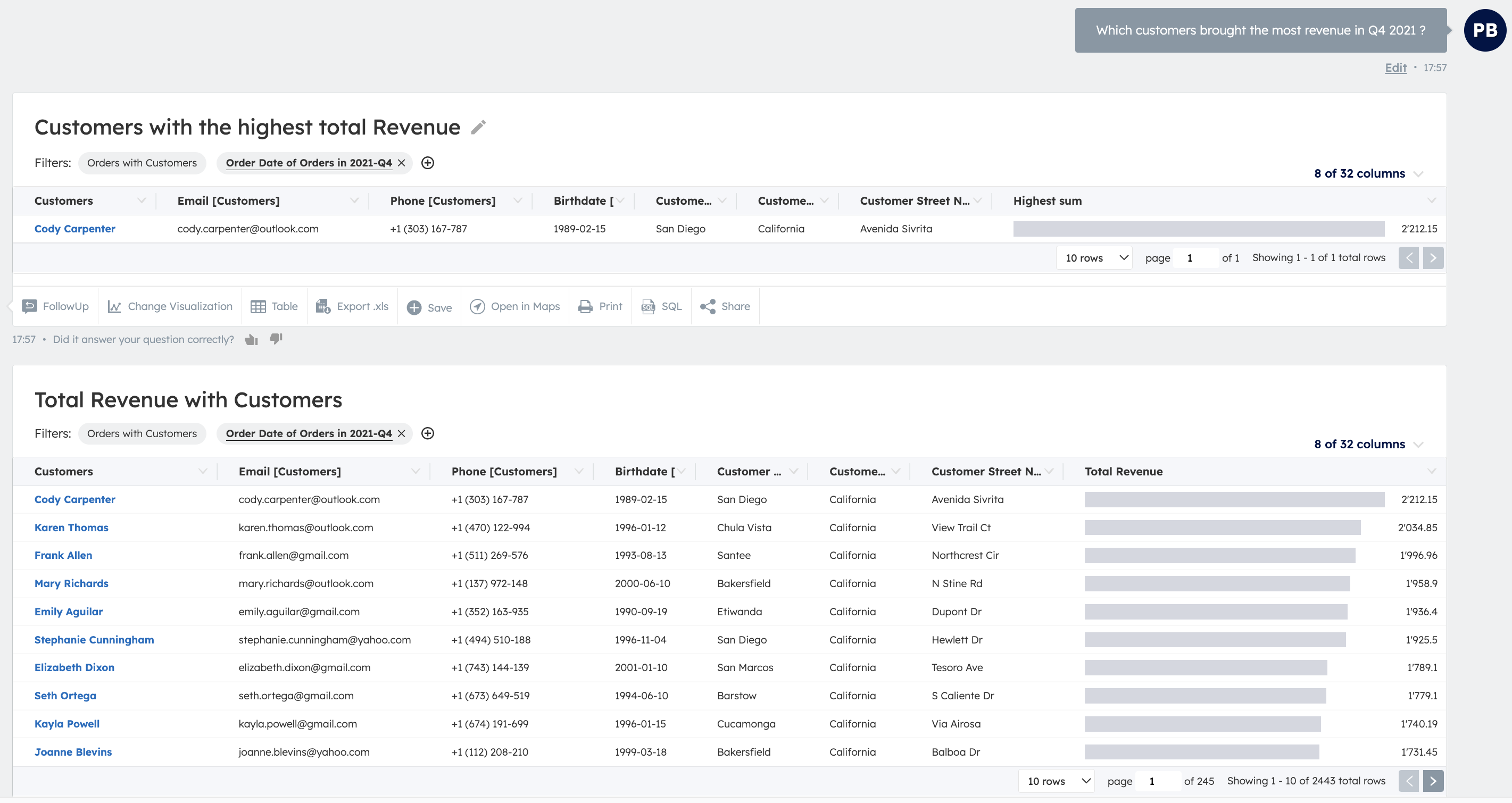Why Data Democratization Could Make a Big Difference to your Organization
Data democratization - sounds complicated, right? But in reality, it's actually something that helps uncomplicate everyday life - at least in the workplace. So let's get right to it.

What is Data Democratization?
Data democratization is the process of making data accessible to everyone in an organization, irrespective of their level, from the executive level to the individual user. The goal of data democratization is to enable better decision making based on data-driven insights, allow users to gain a better understanding of the data, and encourage collaboration across teams.
Data democratization allows every employee in an organization to access, interpret, and use data to make decisions. It gives users the ability to explore and analyze data without having to rely on experts or specialists, which goes a long way in managing workload and reducing bottlenecks.
Data democratization also enables users to visualize and share data easily, leading to more informed decisions. It is becoming increasingly important as businesses become more data driven and technology advances. By making data accessible, organizations can gain valuable insights that help them make better decisions and improve their performance.
By empowering employees with data, businesses can also increase engagement and collaboration, leading to greater innovation and productivity. Data democratization also helps reduce silos within an organization. By giving everyone access to the same data, it can lead to better collaboration and improved communication across teams. It also enables easier integration of data sources, allowing for a more comprehensive view of the information available in an organization.
Data democratization benefits the entire organization, but in particular non-technical users or business users really see the benefits of it. Here are just some of the benefits for business users.
Why Democratize Data?
Data democratization benefits the entire organization, but in particular non-technical users or business users really see the benefits of it. Here are just some of the benefits for business users.
1. Increased Access to Data: Data democratization allows non-technical users to access data that they would not have otherwise been able to access – and more importantly interpret data with a degree of efficiency that they otherwise wouldn’t have had. This therefore increases their ability to spot trends and patterns.
2. Improved decision-making: Data democratization provides non-technical users with insights that can help them make better decisions. By having access to data and the ability to analyze it, non-technical users can assess different courses of action and make decisions that are more informed. This improves the overall efficiency of an organization.
3. Increased collaboration: Data democratization makes it easier for non-technical users to collaborate and share data. By having access to data from multiple sources, non-technical users can work together to solve problems, improve processes, and identify new opportunities.
4. Self-service analytics: Data democratization provides non-technical users with the ability to create their own reports and dashboards without relying on IT resources. This makes it easier for users to quickly obtain insights and make data-driven decisions and greatly reduces the back and forth that comes with sending requests to the data team.
Of course for data teams and “tech users”data democratization greatly reduces their workload and the ad hoc requests they have to deal with. This is therefore a win win for both the business side and the tech side of the business.
But.. Do we really Need this?
I hear you, you’re probably thinking this is a lot of trouble to go to – is it safe to hand over the reins of data to business people? Wouldn’t it be better to just allocate more time for decision-making?
Turns out that more time only leads to people making decisions based on gut feeling or experience. At Veezoo, we conducted our own survey with over 400 participants and here’s what we found.

What do people do when they do not have enough data for a decision?
When people don’t have the data they need to make a decision, they don’t necessarily wait. More than half the people request the numbers from the data team or they make this decision based on prior experience. This means they’re not using the data available for that particular situation or use case. While prior experience is great, every situation is different and this may lead to people “following their gut” and making the wrong decision.
Data Democratization At Play
What does it look like if data democratization has been implemented in an organization? Here’s a quick look, using Veezoo.
Let’s say you run an e-commerce company and given that it’s the holiday season, you want to reward loyal customers so they come back. How do you start? Here’s a hint: Not by going to the data team.
If you had a self service analytics, like Veezoo, you’d start by asking which of your customers ordered the most number of times.

Which customer placed the most orders in Q4 2021?
I actually got a whole list

List of Customers by Orders in Q4 2021
But what if after some thought you decide to reward order value rather than order frequency. It’s back to the drawing board then.

Customers that brought in the most revenue in Q4 2021
As you can see here, the people that brought in the most revenue are not necessarily the ones with the most orders.
So, in order to boost Q4 sales, you can offer a 20% discount to the top 100 customers with the most number of orders. And to sweeten the deal, you can add an extra 10% for the people who brought in the most revenue based off of the two lists. All this in less than a couple of minutes. Now imagine not having access to this sort of data. You would need to go over to the data team, ask them for information, or the revenue team to ask them for these lists, then go back because you decided to not only reward quantity but also quality.
This would take you a minimum of two to three days as opposed to minutes.
How To Prepare Your Team for Data Democratization?
We’ve just seen how data democratization can help organizations. But it’s not something that can be implemented overnight. As human beings we don’t like change, so just like any major change, preparing your team for data democratization is key. Here are just a few suggestions on how to accomplish this:
Educate: It’s probably best to start by educating your team on the concept of data democratization. Explain the benefits of having data available to everyone and the importance of data-driven decision making.
Define Roles: Once you have educated the team on the concept of data democratization, it is important to define the roles and responsibilities of each team member. Establishing clear roles will enable team members to better understand their responsibilities and help ensure that data is shared and used effectively.
Establish Data Governance Policies: Establishing data governance policies is essential for data democratization. These policies should outline who has access to the data, how it should be used, and who is responsible for maintaining it.
Create Data Access Points: Once data governance policies have been established, create data access points. These access points should be available to all members of the team and should allow them to easily access the data they need.
Train Team Members: Once the data access points are in place, it is important to train team members on how to use them. Training should include how to access the data, how to interpret the data, and how to use it to make informed decisions.
A good data democratization strategy should focus on accessibility, collaboration, governance, education, and continuous improvement. This may involve providing self-service tools and resources, encouraging collaboration, establishing clear policies and procedures for data governance, providing education and training, and continuously improving data-related tools and resources. By implementing a data democratization strategy that focuses on these principles, organizations can unlock the full potential of their data and drive better business outcomes.

Data Democratization at work
Things to Look Out For While Implementing Data Democratization
There are several important factors to consider when implementing a data democratization strategy. Here are three key things to look out for:
1. Ensuring that all stakeholders have access to the data they need. Data democratization is all about making data available to everyone who needs it, so it’s important to identify all relevant stakeholders and ensure that they have the tools and access they need to use the data effectively. In this way we can ensure that data democratization doesn’t give rise to new bottlenecks.
2. Ensuring that the data is of high quality and is being used for the right purposes. Data democratization is not just about making data available; it’s also about making sure that the data is accurate, relevant, and useful. This means that data quality should be a top priority, and that the data should only be used for purposes that align with the organization’s goals and objectives.
3. Ensuring that data security and privacy are maintained. While data democratization is about making data more widely available, it’s important to maintain the security and privacy of the data at all times. This means implementing appropriate security measures, such as encryption and access controls, and ensuring that all users are trained on how to handle sensitive data in a secure manner.
The last point is of particular importance, ensuring that people only have access to the data that is relevant to them is key. In fact making sure that this is strictly adhered to is in the best interests of both the organization and the employees.
In Conclusion: Data Democratization Is Worth it
The short answer is yes. Who wouldn’t want to get work done faster and more efficiently? In general, this would also help with work-life balance and team morale. Or save time and sunk costs – that would be an ace up your sleeve especially when it comes to beating the competition.
Data democratization can absolutely help companies to gain a competitive advantage in their market. Let me explain why – by making data more widely available, companies can make faster and more informed decisions, which can help them to respond more quickly to changes in the market and stay ahead of their competitors.
Overall, data democratization is a valuable strategy for any company looking to improve its decision-making, drive innovation, and gain a competitive edge. By making data available to all stakeholders, companies can unlock the full potential of their workforce and position themselves for success in the data-driven economy.


